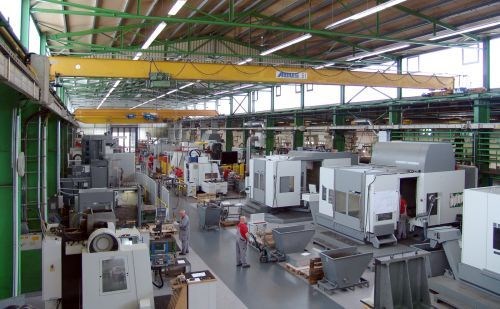Appearances Matter
The benefits of keeping things clean and tidy go beyond the superficial—particularly for U.S. manufacturers.

Is your shop this clean and organized?
If perception is reality, as the old marketing saying goes, what do prospective customers and employees think of your shop?
I’d guess that’s a question that Meissner AG has considered before, judging from its impressive plant. Located about 45 minutes outside of Frankfurt, Germany, this manufacturer of foundry tooling, blow molds and tools for car trim parts gave me a tour during an excursion away from the Euromold show this past December. I wasn’t allowed to take my own photos, but having been there in person, I can tell you that the company-supplied shot above wasn’t staged. Judging from what I saw, this is an accurate rendition of what the production area looks like on a day to day basis—I could almost see my reflection in the floor.
That said, I must admit that I expected nothing less. Indeed, I was predisposed to being impressed before I even walked in the door. My expectations were based on nothing more than what I’d heard second-hand about German manufacturing, as well as that country’s general reputation for quality and reliability (a reputation that is widespread enough in our own culture that certain automakers are quick to capitalize on it in their marketing campaigns).
Unfortunately, U.S. manufacturing has a very different reputation, at least among lay people. Dirty, dangerous, antiquated—accurate or not, that’s what people very well may think of your shop, regardless of whether they’ve actually seen it first-hand. In my view, that makes keeping up appearances even more important. After all, such impressions are often cited as a major reason for the current shortage of skilled young people entering the trade (a problem that’s not nearly as pronounced in Germany, as detailed in this article about another company I visited there).
Granted, industry-types are likely to have more realistic perspectives. Nonetheless, keeping a clean, tidy shop is important for reasons that go beyond just acting as an ambassador for the industry. After all, the fact that I’ve visited a number of manufacturers didn’t prevent preconceived notions from impacting my visit to Meissner, even if I was aware of those notions. The case is likely the same for prospective customers and employees visiting your own shop, regardless of their experience. Who are these folks more likely to want to work with: a company with a production area that looks like the photo above, or one that resembles the dark, dismal environment of the popular imagination? For employees in particular, what message does a dirty, disorganized shop communicate about the standards to which they should aspire in their work?
It doesn’t take a huge leap of logic to see that cleanliness and orderliness can offer benefits that go far beyond the aesthetic. If you’ve seen these benefits first-hand, I’d love to hear your thoughts, as well as learn about any particular efforts to keep things tidy. Comment below or send me an email.
















